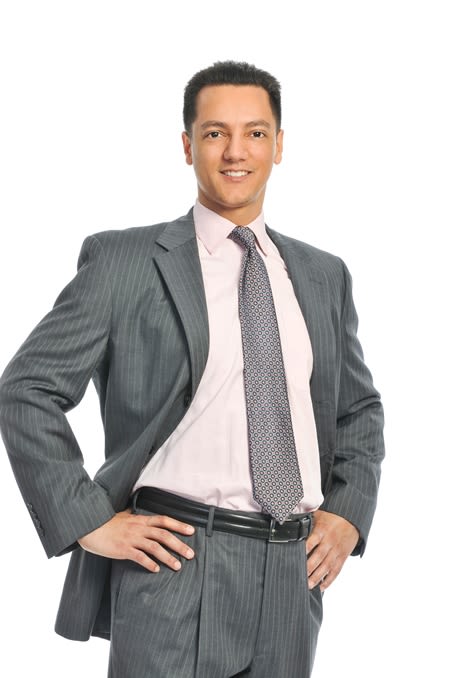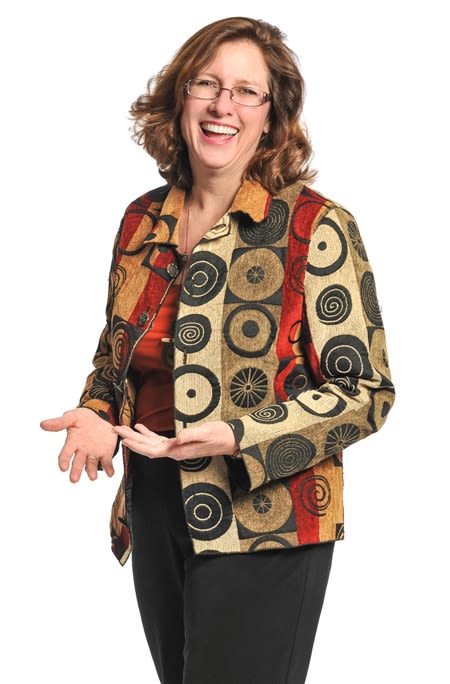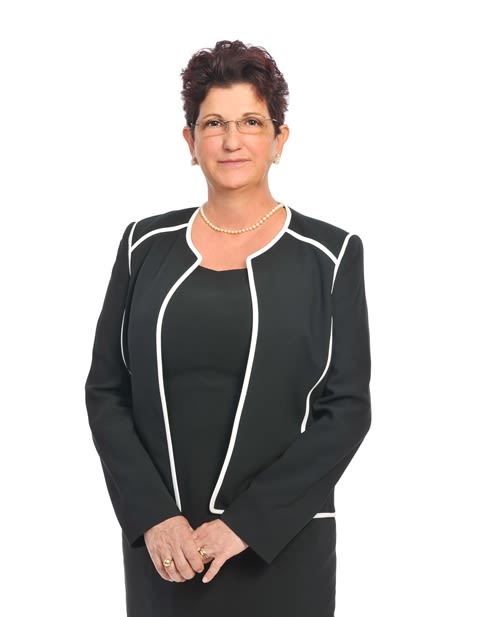The 2014 Unity Awards

For the fourth year, Biz(941) and La Guia magazines are honoring individuals and companies who embrace the talents of all people. There are smart business reasons to value inclusion. Our region, like the rest of the world, is becoming more multicultural, and to neglect the talents and culture diverse populations offer is to turn away from opportunity. Evidence shows that the more diverse your workforce, the more innovative your organization becomes.
The people you’ll meet on these pages have started new foundations to encourage diversity, welcomed immigrants, hired the disabled, encouraged sexual equality and established forums for us to openly discuss prejudice and differences. Their efforts make us all more productive, and in the process, richer in our wallets and souls.
Photography by Barbara Banks

As a litigation attorney who grew up in San Juan, Puerto Rico, Jason Ramos understands how confusing the U.S. legal system can be, especially to newcomers who may not speak English. That is why he spends much of his volunteer time explaining immigration rules to Latin Americans, helping them with visas and citizenship.
“I try to bridge the gap between two cultures,” says Ramos, who recently left the Berlin Patten Law firm, where he practiced real estate and immigration law, to start his own practice. The move allows him more flexibility to increase his activities in numerous organizations, such as the Gulf Coast Latin Chamber of Commerce and UnidosNow, a nonprofit that unites Southwest Florida in “accessing the full benefits of the state’s civic and cultural weave.” “Its goals ring true with my own goals,” Ramos says about UnidosNow, which translates into English as Unity Now.
Ramos also serves on the Sarasota Bar Association’s diversity committee. He says few Hispanics work in area law firms even though Hispanics represent about a quarter of the local population. One goal of the diversity committee is to raise funds to expand a program that places minority high school students in clerkship positions with lawyers and judges.
“I’d like Hispanics to participate in every facet of our community,” says Ramos. —Kim Hackett

Medical Winner: Dr. Dwight Fitch
Bradenton oncologist Dwight Fitch knows firsthand the value of mentors. Growing up in troubled Detroit in the ’70s and ’80s, Fitch credits teachers for keeping him on track and encouraging him to go into medicine. “No one in my family had gone to college, much less been a physician,” he says.
Fitch came to Southwest Florida seven years ago to start his medical career. He loved the area, but was taken aback when he discovered Newtown. “I thought I was back in Detroit,” he says. “The only difference between those boys and me was someone who could show them a better way.”
Fitch joined forces with a startup mentoring organization called Brotherhood of Men. Around that time, a class at Riverview High began with 50 or so African American freshmen; four years later, only about a dozen graduated—five of them Brotherhood of Men members. “They started with us when they were 13 or 14,” Fitch remembers. “At the end they were competing for who’s got the highest GPA.”
At weekly meetings, the group discusses grades, school and home life, sharing their triumphs and mistakes. Fitch also takes them to the theater, opera and even the beach—nearby worlds that most of the boys have never experienced.
While the Brotherhood of Men’s other volunteer mentors are called “uncle,” Fitch is known simply as “Doc.” “Accountability, education and opportunity are Fitch’s goals for the boys. “Not only can they do it; they’re expected to do it,” he says. “They just need somebody to care.” —Hannah Wallace

Large Company Winner: Publix
With 39 stores and more than 2,200 employees in Sarasota and Manatee, Publix is the region’s largest private employer. The grocery store chain is also a leader in its hiring of employees of all backgrounds; in particular, Publix employs the physically and mentally disabled, who are often favorites with other employees and customers.
“The only question we ask is, “Are they able to perform the essential function of the job?’” says Brian West, Publix’s community relations manager for our region. “All the [disabled] want is a chance to work, to be included.”
Company founder George Jenkins began his relationship with the disabled in 1974, when he learned that Florida’s Special Olympics team was about to drop out of the national competition because it couldn’t afford the travel. Jenkins paid for the entire team to fly to Los Angeles that year. Since then, Publix has supported the Special Olympics.
The company has a formal diversity department, which makes a point of holding job fairs and networking in all communities to employ a wide range of people. “It’s about recruitment,” says West. “Our applicants are our customers. We believe our company should be a mirror of the population of people who make up our community. Hiring them helps us to meet the needs of our customers.”
Publix also supports diverse community causes, especially those that are important to its employees. “I have a stack of donation requests six inches tall on my desk,” says West. “You would be hard-pressed to find an organization that has not been impacted by our mission." —Susan Burns

Arts Winner: Kate Alexander
For decades, Florida Studio Theatre has produced plays that make audiences ponder uncomfortable topics such as religion, sex, mental illness and politics. The provocative and yet sensitive way in which the theater has addressed these hot-button issues has been a big reason for its huge and loyal audience.
But in the last several years, executive director Kate Alexander has explored racism not only in plays such as The Exonerated, Race and Best of Enemies but by extending the discussion beyond the actual performances. Alexander invites community leaders to participate in panels, where they and audience members discuss difficult questions and confront their own feelings of prejudice. “It took off like wildfire,” she says.
This winter she is directing Thurgood, a play based on the life of Justice Thurgood Marshall, the first African-American U.S. Supreme Court Justice. The play’s reach will go far beyond the stage. Alexander has asked 15 other organizations to support the effort and has organized lectures (journalist Charlayne Hunter-Gault and Gilbert King, author of Devil in the Grove, will be speakers), panel discussions, an essay contest, a “Let’s Talk Racism from the Pulpit” weekend and special performances for 1,500 students to see the play and discuss their own experiences.
“Theater is a great platform, and this topic has always been close to my heart,” she says. “I love when the dialogue extends beyond the play and people have a stake in what is happening. Our theater has taken on a leadership role.” –Susan Burns

Nonprofit Winner: Brad Jones
In the two years that Brad Jones has been the director of adult services for Community Haven for Adults and Children with Disabilities, the program’s enrollment has increased from 70 clients to more than 130. Jones, who was awarded the 2013 Michael Goodman Leadership Award from the Florida Association of Rehab Facilities, says his top priority has been to help Community Haven’s adult clients find a sense of purpose in work.
“A lot of programs are more like daycare,” he says, “but I wanted to make ours more vocational. We’re breaking the boundaries of what people think about disabilities.”
Jones has doubled Community Haven’s partnerships with local business, from six to 12. Projects include baking, landscaping, assembly work and more. Some of those businesses have multiple contracts, too; Sun Hydraulics has eight contracts, for example, and Jones estimates that Community Haven clients assemble 10,000 pieces a week for the company.
“It’s a win-win,” he says. “The clients get a meaningful activity and, most importantly, a paycheck. The businesses get high-quality work and a tax break.” Some businesses have Community Haven clients work on-site, alongside full-time employees, and Jones says the clients’ “infectious personalities” can be a morale boost; at least 12 of those employees have started volunteering at Community Haven.
Looking ahead, Jones says his biggest concern is finding more space. “We have three buildings occupied, even a classroom in our administrative building,” he says. “We have about 12 people on a waiting list, and we don’t like saying no.” —Beau Denton


Education Winners: Dan Boxser and Donal O'Shea
New College has always been known for its outstanding students, but not so well known for its diversity. A new initiative, Educate for Change, aims to alter that by welcoming up to 10 female students each year from Middle Eastern countries, who will attend the liberal arts college on full scholarships.
A number of Sarasotans are involved with bringing the project to fruition, but two of them—Dan Boxser of the Herman and Sally Boxser Diversity Initiative, and New College president Donal O’Shea—have been instrumental. It was through the Boxser Initiative that the founder of the Daughters for Life Foundation, Palestinian Dr. Izzeldin Abuelaish, came to town to speak last year. Abuelaish was inspired to create the foundation after the deaths of his three daughters and a niece when an Israeli tank fired a shell into their home. He wanted to make certain that young Middle Eastern women would have an opportunity for higher education to honor their memories.
Enter Boxser and O’Shea, who quickly set the ball rolling to enroll those 10 students here by the fall of 2014. “This program benefits not only the students, but also New College as an academic institution and the Sarasota community,” Boxser says. “Diversity in our community encourages people to come here, and, more importantly, young people to stay here.”
Among the countries likely to be represented are Israel, Palestine, Jordan, Egypt, Syria and Lebanon. —Kay Kipling

Entrepreneur Winner: Grace Carlson
There is a blurry line between the public relations work Grace Carlson does to pay the bills and the work she does to satisfy her heart. “I have always championed the underdog,” says Carlson, owner of Carlson Studio Marketing, a Sarasota-based green branding and public relations firm, established in 2005.
When she is not helping clients with marketing needs, Carlson can often be found in Tallahassee lobbying for research dollars and better healthcare for the poor as chair of the American Cancer Society’s Sarasota unit, or asking city and county commissioners to establish domestic partnership registries.
Working with former Sarasota City Commissioner Ken Shelin and Equality Florida, Carlson helped convince the Sarasota County Commission, the City of Sarasota, North Port and Venice to pass ordinances granting gay and unmarried couples health and legal rights. Now the group is focusing on Manatee County.
“I can’t write a million-dollar check, but with my voice, I can help the underserved in our community,” says Carlton, who grew up in Sarasota and shares four adult children with architect Michael Carlson.
One of her favorite projects was the Embracing Our Differences program, established to teach students—and the community—tolerance and diversity, through writing and art, which is then displayed at Island Park. The program prompted Riverview High School to start a diversity club, which raises money so other students can take field trips to the Embracing our Differences exhibit. Carlson brought Riverview students into the program as docents for the exhibit.
“It makes me feel great to be part of it,” Carlson says. “I feel so hopeful for the future.” —Kim Hackett

Alumni Award: Rosalia Holmlund
2011 Winner, Entrepreneur category
Colombian-born Rosalia Holmlund’s story is the immigrant’s tale of hope and dreams. She scrubbed floors for 13 years after arriving in the U.S. and then sold clothing door to door to migrant workers, trying to make a life for herself and her two young sons. Holmlund opened El Mariachi Loco in Manatee County in 2000, a business that now has two locations, 1,000 customers a day, 35 employees and 2013 revenues of more than $1.5 million. Her stores have become a one-stop shop for Hispanics, whether they need groceries, bill paying and check cashing services, car care or insurance.
But Holmlund’s nonstop efforts to find new ways to improve the lives of immigrants have earned her our Alumni Award. Her latest venture is to improve the financial literacy of Hispanic newcomers.
Holmlund holds free monthly classes in her store, teaching how to save, carry life insurance, pay off debts, invest and pay taxes. These concepts are foreign to newcomers, especially the poor, who often handle all transactions in cash and don’t understand the value of investments and insurance. Holmlund's goal is to help some of her students go into business for themselves.
“I invite all my customers,” she says. “I was very poor, and I knew that if I could learn how to do this, anyone could.”
“The most important thing to me is for our kids to be successful, and this must start with the parents,” she says. “I believe we are going to change a generation this way.” –Susan Burns
How to Create a Diverse Workforce
Diversity these days is about far more than complying with equal opportunity laws. Diversity gives companies an edge. An inclusive workforce helps businesses stay informed about the tastes and habits of their customers, increasing brand loyalty. A multicultural workforce helps attract top talent from all corners. And perhaps more importantly in a competitive environment, diversity fosters innovation. The more types of people that bump up against one another, bringing their ideas and experiences, the richer the environment for seeing new opportunities.
Pat Mathews of Workplace Experts says, “Diversity is everything today—age, gender, sexual orientation, race and ethnicity—and it’s a competitive advantage. Your workforce should mirror the people who use your products.” Here are her tips:
1. Make diversity a top-down value. Leadership and the board of directors must play an active role. They must talk about diversity as a business requirement and a workplace issue. The value of diversity must permeate the entire organization. “You have to ask if your culture is ready for diversity,” says Mathews. “Some companies don’t even tolerate personality differences.”
2. Look at your recruitment. Are you hiring from a diverse population? Take an active role in diverse communities and seek people of talent. And when you hire, what do your applicants see? “Is it a plain vanilla work environment?” Mathews asks. Make sure to conduct exit interviews to find out why employees leave. “Are there any diversity issues?” she asks.
3. Choose a point person. Making sure an employee is overseeing diversity efforts is important. “But do not single out an individual with particular diversity characteristics to handle diversity issues on behalf of everyone else,” says Mathews. “Look for the right person.”
4. Support your diverse workforce. Provide mentors by pairing up employees of diverse backgrounds, and hold managers accountable for supporting diversity and treating employees equitably. Do not tolerate inappropriate behavior.